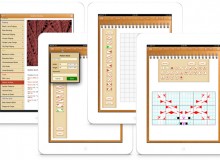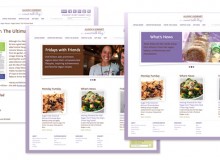 You’d think we’d know a lot about print advertising at this point. It’s not exactly a new medium after all. But there seems to be a strong tendency to make the same mistakes over and over, and then wonder why the campaign didn’t work. Here’s a list of do’s and don’ts to help make your print ads more successful.
You’d think we’d know a lot about print advertising at this point. It’s not exactly a new medium after all. But there seems to be a strong tendency to make the same mistakes over and over, and then wonder why the campaign didn’t work. Here’s a list of do’s and don’ts to help make your print ads more successful.
Do
- Clarify your audience—knowing whom you’re trying to reach is the ultra-crucial first step.
- Hire a professional to develop a media plan—wrong publications, wrong timing, wrong frequency, wrong mix can easily doom the best ad campaign.
- Decide what you’re selling before creating an ad.
- Sell benefits, not features in a product or service ad—focus on the top two or three.
- Show your product or service in action—incorporate people.
- Consider premium positions to increase readership and recall.
- Learn from other advertising campaigns—including your competitors.
- Write killer headlines that speak to benefits—five times more people read a headline than body copy.
- Communicate the brand and a positive message.
- Incorporate high-impact visuals and easy-to-read typefaces.
- Remember that you are not the buyer—what matters is whether your campaign works, not whether you like it.
- Include URLs to drive website traffic—a study shows the biggest lifts in women’s service (198%), home (203%), and travel (286%) categories vs. ads with no URL.
- Track and test, track and test—improve tracking with coupons, new VOIP services, special pricing, landing pages, subscriber surveys, tip-ins, etc.
Don’t
- Underestimate the power of frequency—it’s a critical campaign success factor.
- Forget to include a strong direct response component to generate leads.
- Fail to hook readers quickly—the average reader glances at a print ad for two seconds with 1.5 devoted to the visual.
- Sacrifice brand visibility for “creativity”—ideally integrate the brand with the visual.
- Choose visuals that generate negative, unintended associations.
- Make people work hard to connect your visuals with your product and brand.
- Wander from your key points.
- Load your ad with meaningless platitudes—“we provide quality service,” etc.
- Forget that a direct response ad needs more copy to explain a product or service.
- Choose an inappropriate format for your message—consider spreads, inserts and advertorials if you need more space.
- Neglect to advance the reader to the next step.
- Limit your advertising to just print or any other single medium—it’s very much a multi-channel world.
By Larry Bauer






